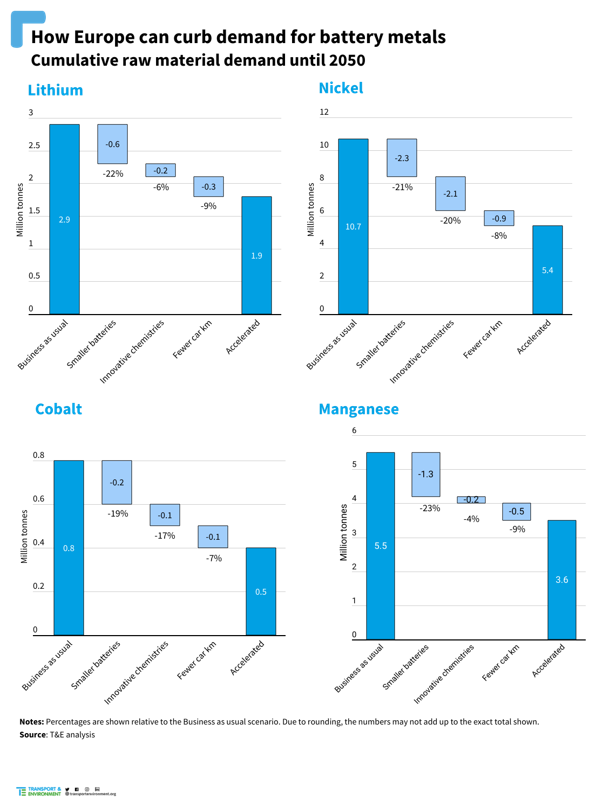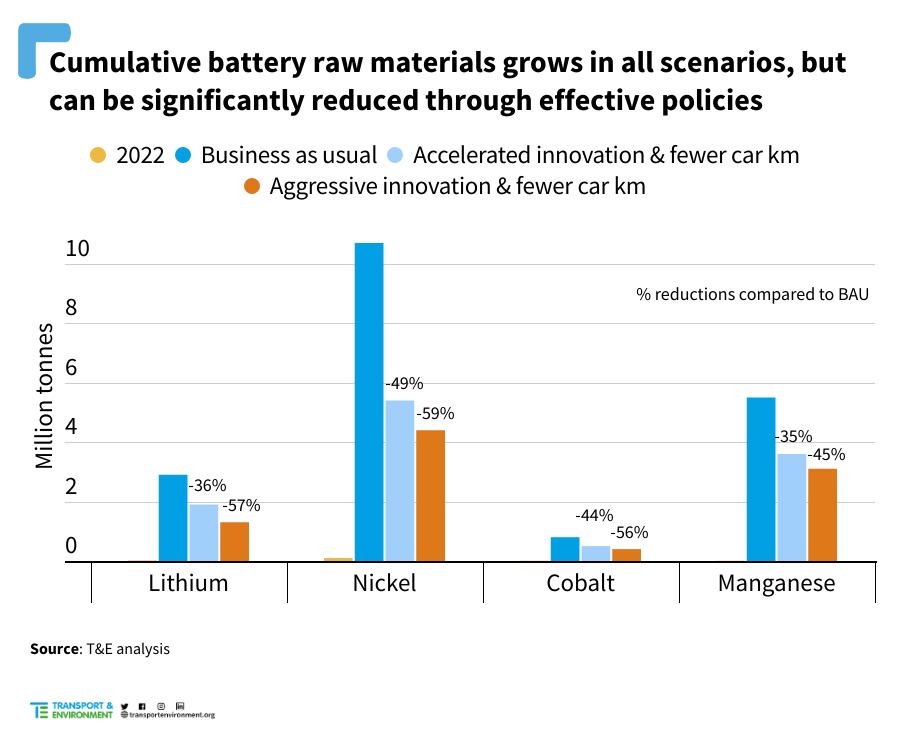Demand for battery raw materials in Europe will increase rapidly between now and 2050 as the continent races to switch to zero-emissions road transport, essential for its climate goals. But the region can curb the expected consumption of key metals from electrifying passenger transport by up to 49% over that period, according to new analysis. Green group Transport & Environment, which conducted the study, said governments and the EU must take action to reduce battery and car sizes, which is the single most effective measure to reduce metals demand.
To decarbonise its fleet between now and 2050, Europe will require 200 times the battery raw materials it consumed last year – unless action is taken, the report finds. But policies to incentivise small affordable entry-level BEVs, adopt innovative battery chemistries and reduce private car journeys, could cut demand for key metals lithium, nickel, cobalt and manganese by 36-49%.

Julia Poliscanova, Senior Director, Vehicles & Emobility Supply Chains, at T&E, said: “Europe needs to electrify its entire fleet by 2050, but with that comes a growing demand for battery metals. If we are serious about not repeating the mistakes of insatiable oil dependency, then resource efficiency has to play a big role. In a supply constrained world, smaller electric cars are not just an environmental must, but a sound economic and industrial policy.”
Reducing battery size, by making smaller electric vehicles, is the single most effective way to reduce demand for the metals (19-23%). T&E said a Europe-wide strategy is needed to shift to smaller, more affordable and resource light electric vehicles than the large SUV models coming to market today. National measures should include tax incentives for smaller models, while at EU level, battery efficiency standards and requirements on automakers to produce more entry-level models are needed.

Smaller electric cars are also perfect for batteries built with less resource intensive chemistries that can reduce metal demand by up to 20%. Strong industrial policy is needed to scale up European production of new technologies such as iron-based (LFP) and sodium-based (Na-ion) batteries. Reducing journeys by private cars can deliver a further 7-9% reduction in demand. T&E calls for a range of measures including building fewer roads, cutting the space available for private cars and charging for parking. Governments should also promote public and shared transport and active travel.
Julia Poliscanova said: “Making smaller electric cars is the single biggest thing we can do to curb our consumption of battery raw materials. An EU efficiency standard could require carmakers to finally provide more resource-light vehicles which will actually be more affordable than today’s bulky models. There is a market for millions of small BEVs in Europe, but people can’t find them on the forecourt.”


